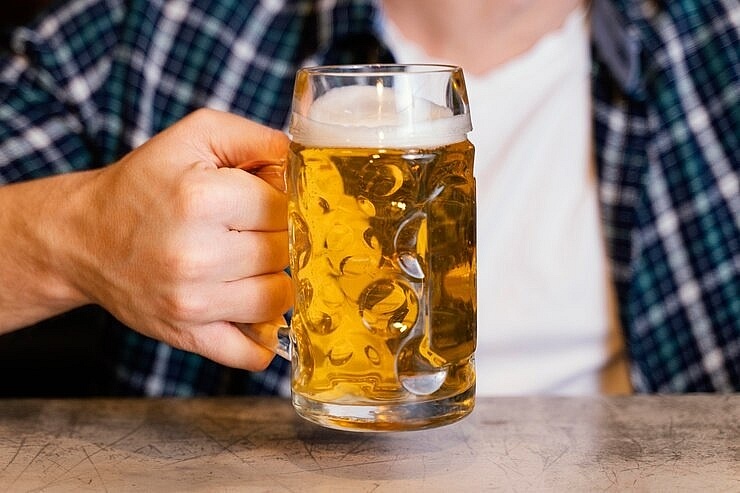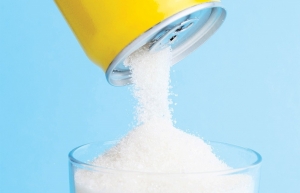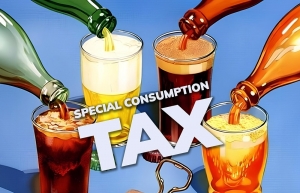Businesses call for further scrutiny on beverage tax
At a workshop held earlier in September on the draft amended Law on Special Consumption Tax (SCT), organised by the Vietnam Association of Foreign Invested Enterprises (VAFIE), Nguyen Van Phung, former director of the Department of Tax Administration for Large Enterprises under the General Department of Taxation, reiterated the objectives of imposing SCT on sugary beverages.
 |
| Various countries take on drastically different methods when it comes to taxing sugary drinks, Source: freepik.com |
“The first objective is to implement the Party and state’s policy on protecting public health by reducing the consumption of items that are not good for the community, especially children,” Phung said. “However, the figures provided by the drafting committee are not convincing.”
He questioned the effectiveness of the tax, noting that many other foods and drinks high in sugar and calories remain on the market.
“If the SCT is imposed only on sugary beverages, will consumers simply turn to other products that may also contribute to non-communicable diseases?” Phung asked.
He also emphasised that it was quite difficult to change consumer behaviour through taxation in this case, and he warned that it could lead to an increase in smuggled goods and street foods, whose quality and tax collection cannot be controlled.
Nguyen Thi Lam, former deputy director of the National Institute of Nutrition, echoed the concerns. “There are many causes of becoming overweight or leading to obesity. Reducing the consumption of sugary drinks alone will not solve these problems,” she said.
Lam pointed out that Vietnam’s obesity rate is lower than most ASEAN countries and globally. The average rate of overweight and obese people in ASEAN is nearly 34 per cent, with Brunei at 62.8 per cent, Malaysia over 50 per cent, and the Philippines 37.2 per cent. In Vietnam, the rate is 18.3 per cent.
“World Health Organization research highlights various causes of obesity, including biological factors, genetics, environmental factors, tobacco use, lack of physical activity, and an unhealthy diet. The contribution of sugary drinks is minimal,” Lam said.
She referred to data from the World Obesity Federation showing that between 2016 and 2024, 21 countries that imposed taxes on sugary drinks, including the US, Brunei, and Malaysia, saw an increase in obesity rates. Conversely, in 65 countries that have never imposed such a tax, including China, Indonesia, Denmark, and Italy, obesity rates decreased.
“Japan, for example, does not tax sugary drinks, yet its obesity rate has remained stable for the past nine years, largely due to its culinary culture of fresh, minimally processed food,” Lam said. “This proves that sugary drinks are not the main cause of obesity.”
Nguyen Mai, chairman of the VAFIE, added that many Vietnamese children are underweight, not obese. He pointed out that the average height of Vietnamese adults, 1.55m for women and 1.63m for men, is not only below the global average but also significantly lower than in many ASEAN countries.
“We cannot impose an SCT on soft drinks based on unscientific grounds and insufficient data,” Mai said.
He highlighted that children in rural, remote, and isolated areas drink soft drinks very rarely. “If we impose this tax, it will make soft drinks an even more distant dream for many children in these areas,” he said.
Research by the Central Institute for Economic Management in September shows that adding a 10 per cent SCT on beverages with a sugar content exceeding 5g/100ml would negatively impact nine beverage industries and 24 related sectors, causing a loss of nearly VND28 trillion ($1.14 billion), equivalent to 0.5 per cent of GDP in 2022. This would also reduce annual indirect taxes by $220.4 million and direct taxes by $130.6 million due to decreased consumption and production.
Expert Can Van Luc from the BIDV Training and Research Institute noted the significance of these numbers. “Sugary beverages are only one of nine causes of obesity, and this tax may not ensure fairness or efficiency,” Luc said. “While the health benefits of the SCT on sugary drinks are not convincingly demonstrated, the threat to businesses is very real.”
Luong Xuan Dung, chief of the Vietnam Beer-Alcohol-Beverage Association, pointed out that the profits of the beverage industry have already decreased by 67 per cent since the pandemic, with small- and medium-sized enterprises hit the hardest.
“Imposing SCT on sugary drinks will severely affect the recovery of enterprises, especially in the context of rising raw material costs and consumers tightening their spending,” Dung said.
Nguyen Van Phung added, “The SCT on sugary drinks is unlikely to generate significant revenue but may hurt businesses, particularly small and medium-sized enterprises with limited financial resources. There should be a roadmap, perhaps imposing the SCT by 2030.”
The draft law on SCT proposes a 10 per cent tax on sugary drinks with more than 5g/100ml of sugar, citing health protection as the primary reason, based on recommendations from some international organisations.
 | Sugar tax plans see detailed additions Vietnam is closer to adding a tax on soft drinks based on sugar content to encourage businesses to produce and import low-sugar soft drinks. |
 | Vietnam to act on surge of sugary drinks Sugar-sweetened beverages in Vietnam may begin to be subject to a special consumption tax later this year, following the potential adoption of amendments to the Law on Special Consumption Tax. |
What the stars mean:
★ Poor ★ ★ Promising ★★★ Good ★★★★ Very good ★★★★★ Exceptional
 Tag:
Tag:
Related Contents
Latest News
More News
- Masan Consumer names new deputy CEO to drive foods and beverages growth (February 23, 2026 | 20:52)
- Myriad risks ahead, but ones Vietnam can confront (February 20, 2026 | 15:02)
- Vietnam making the leap into AI and semiconductors (February 20, 2026 | 09:37)
- Funding must be activated for semiconductor success (February 20, 2026 | 09:20)
- Resilience as new benchmark for smarter infrastructure (February 19, 2026 | 20:35)
- A golden time to shine within ASEAN (February 19, 2026 | 20:22)
- Vietnam’s pivotal year for advancing sustainability (February 19, 2026 | 08:44)
- Strengthening the core role of industry and trade (February 19, 2026 | 08:35)
- Future orientations for healthcare improvements (February 19, 2026 | 08:29)
- Infrastructure orientations suitable for a new chapter (February 19, 2026 | 08:15)




















 Mobile Version
Mobile Version